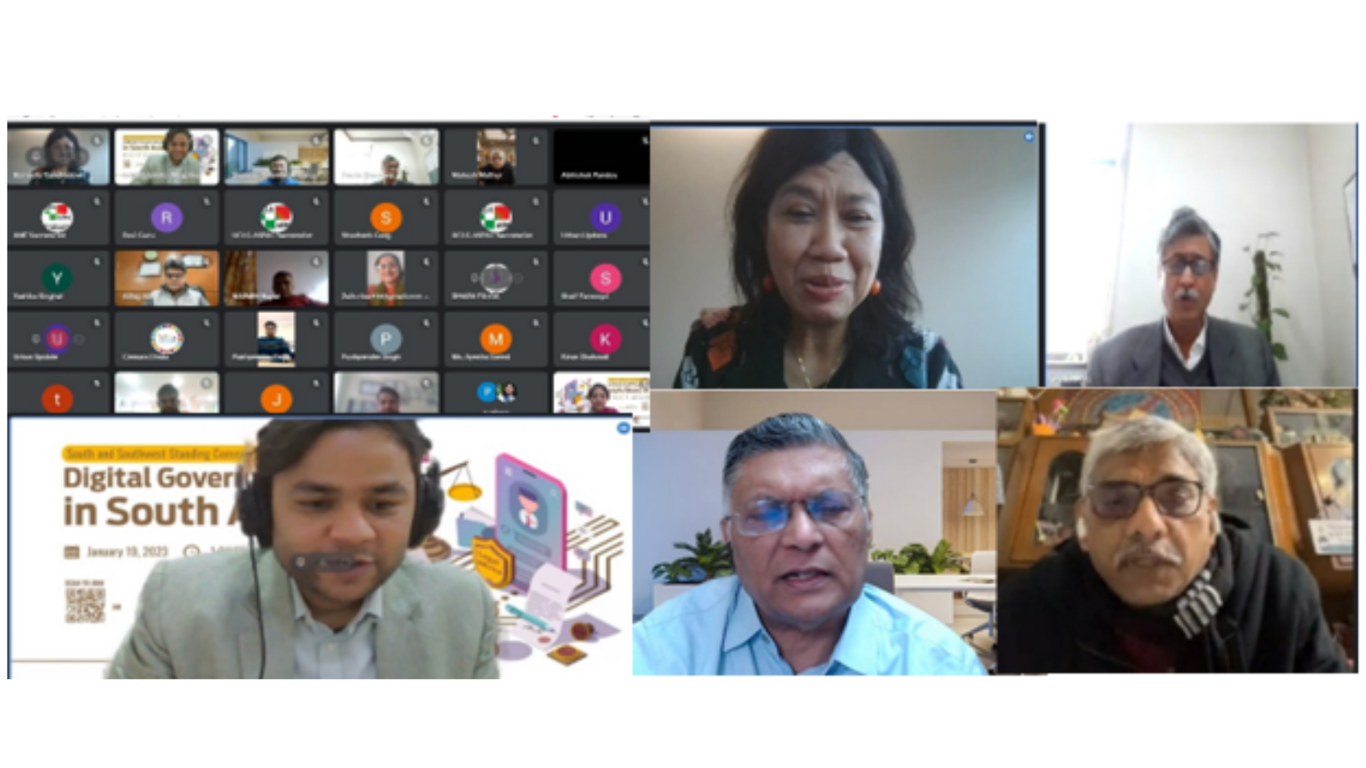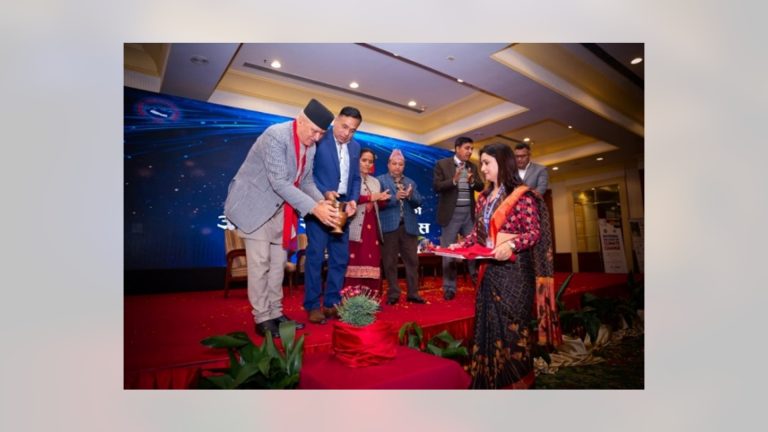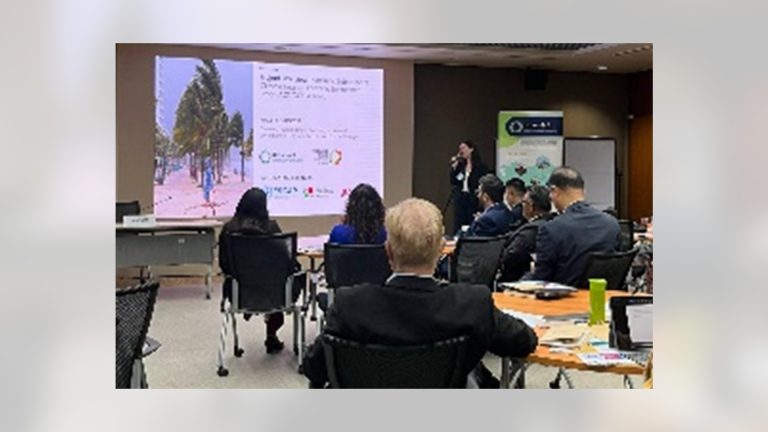January 19, 2023 | UCLG ASPAC South-southwest (SSW) Standing Committee held a webinar on “Digital Governance in Southwest Asia” on January 19, 2023 to share the benefits and challenges of digital local governance in Southwest Asia and the good practices of digital governance in the region. The webinar also shared India’s experience of digital governance for possible adoption by members of the SSW sub-region.
Speakers of the panel included Mr. Praveen Bhardwaj, Senior Urban Expert; Prof. Mukesh Mathur, Former Director of National Institute of Urban Affairs (NIUA) from New Delhi; Mr. Na. Vijayashankar, Founder and Director of Cyber Law College from Bengaluru; and Mr. Pashim Tewari, Technical Director of AIILSG.
In the webinar, Ravi Ranjan Guru, Chair of the SSW Standing Committee and Deputy Director General of All India Institute of Local Self Government (AIILSG) mentioned how digitalisation can be helpful for local bodies and the governance system if they leverage the benefits of the digital solution for effective and efficient delivery of services to improve citizens’ lives. He further added that digital technologies can strengthen public administration, expand, and improve services provision, streamline and optimise internal processes, and allow residents to engage with institutions and public issues in multiple ways both nationally and locally.
Mr. Bhardwaj, Senior Urban Expert talked about digitalisation in local governance and mentioned the e- governance system in India and its services like Government to Citizen (G2C) services, Government to Business (G2B) services, Government to Employee (G2E) services, and Government to Government (G2G) services. There are many G2C services, like online building plan approval, public grievance management system, municipal license management system, property tax management system, human resource management systems, water connection, and water billing, real estate regulatory system, and many others.
Mr. Mathur, a Professor of the National Institute of Urban Affairs, mentioned key elements of good governance including accountability, transparency, and participation. He discussed extensively the financial ecosystem of urban local bodies before the introduction of digital governance and the current scenario. The 15th Finance Commission has mentioned it clearly that all audit reports need to be made available online for the public scrutiny and it has been made easier for the citizens to know how their money is spent, the kind of subsidy they are getting and so on. Recently, the Ministry of Housing and Urban Affairs has launched a city finance portal to collect financial information of the urban local bodies as well as the grants of the 15th Finance Commission, be it the tied grants or the untied grants and those linked with the performance of the local bodies.
Mr. Vijayshankar, Founder and Director of Cyber Law College, discussed challenges of digital governance. One of major challenges is that the e-governance tendering system tends to benefit institutions with good IT literacy; thus, normalise the high participation of Multi-National Companies (MNCs) and international companies. The government also tends to go to a well-established company, increasing the cost of the project and waste of funds which could have been utilised in a better way. Therefore, having reliable local vendors is important and one of the most important aspects of good governance. He further mentioned that the accessibility of digital mediums for disseminating e-services and the lack of digital literacy are also setbacks in this digital revolution. This digital divide affects women and other vulnerable sections the most. There is no need to look far behind to testify this, the world has witnessed it recently during the COVID-19 pandemic.
Mr. Tiwari, Technical Director of AIILSG, explained how the SSW sub-region is moving towards e-governance system. The availability and the accessibility of a digital platform, which is inclusive in nature and has certain ability to be done in a low resource environment, has led to a maturity where most governments, today, are present on the electronic platform. He stressed the four key components that need to be ensured for an effective digital system i.e. digital 6identity like the AADHAR (Unique Identification Authority of India); the network system available and accessible to everyone; ability to transact (which means payment based on the services provided through the digital network); and locational services (where all cities are in GIS platform). These components are to get Government, Industries, Academia, and Citizens (GIAC) together and involved in the system and help to transact and disseminate information. To achieve this, one has to increase the capacity of the governance system. He also mentioned about the barriers- accessibility of the internet at an inclusive pricing, digital literacy, and making it gender inclusive.
The webinar concluded with a key message from Dr. Bernadia Irawati Tjandradewi, Secretary General of UCLG ASPAC, highlighting the importance of developing digital infrastructure despite challenges faced due to linguistic barriers, lack of technical awareness, and availability of digital tools. She stressed that digital e-governance should also be inclusive in nature and gender sensitive.











